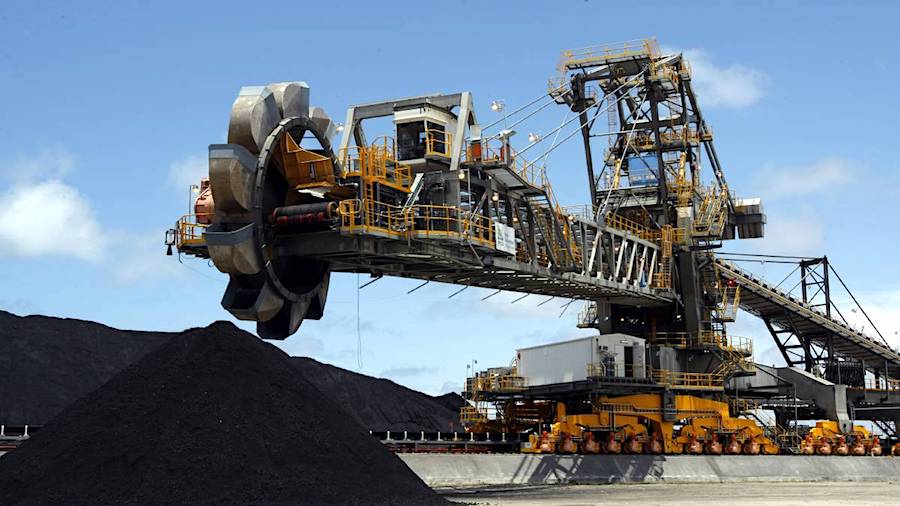China is close to lifting a more than two-year-old unofficial ban on Australian thermal and coking coal imports for its power and steel plants, as the country looks to expand its procurement origins and reduce trade flow disruptions following the Russia-Ukraine war, several market sources in China, Singapore and Indonesia told S&P Global Commodity Insights Jan. 4.
While the exact timeline of the ban's removal is unclear, Chinese traders and end-users said three China's state-owned power plants -- China Datang Corp., China Huaneng Group Co., China Energy Investment Corp. -- and steel producer China Baowu Steel Group Corp. have received intimations from the government to import Australian coal.
"Some of the state-owned companies out of the four listed have been given verbal confirmation," a Chinese trader with knowledge of the matter said. "It remains to be seen if the customs provide the green light clearance for them to officially start procuring Australian coals."
The four companies did not immediately respond to S&P Global's requests for comment and attempts to reach the Chinese customs office were unsuccessful at the time of publication.
China's top economic planner National Development and Regulatory Commission, or NDRC, and the Ministry of Electric Power, or MEP, held discussions Jan. 3 about reopening coal trade with Australia, according to some Chinese end-users.
The ban is expected to be relaxed on a miner-to-end-user basis and will likely not extend for general trading purposes, a Chinese end-user said. S&P Global could not reach the NDRC and MEP for comment.
Traders are uncertain about Australian thermal and coking coal demand at current prices. Chinese coal buyers have been on the sidelines due to rising COVID-19 cases and Lunar New Year procurement activity nearing completion.
"Some large power plants can import Australian coal according to demand, but demand is limited due to the price," a China-based trader said.
Market participants in the Chinese coking coal market said the Australian fuel is on a par with the US-origin material and weak demand would limit the immediate effect of China's possible move. Allowing inflows from Australia, which makes up about 30% of global coal exports, the biggest followed by top supplier Indonesia, will ensure China has enough options after Russia's invasion of Ukraine in February 2022 propelled global thermal coal prices to record highs.
China could reclaim its position as the top consumer of Australian coal in the long term, the participants said.
China raised its coal imports from other global origins -- Mongolia, Russia, the US, Canada, Columbia, and Indonesia -- post the ban in October 2020, boosting prices of those coal grades in 2021. The ban also led Chinese buyers to rely on domestic coal, with most opting for long-term agreements with domestic mines to ensure steady supply. Chinese domestic mines have said they will ramp up production in 2023, boosting supply.
Australian sellers were forced to increase market share in existing markets post the ban that included Japan, South Korea, and Taiwan, while also boosting their presence in India, Vietnam, Thailand, and other Southeast Asian countries.
Australia exported 92.1 million mt of thermal and coking coal to China in 2019, S&P Global data showed. The exports fell to 70.6 million mt in 2020.
Although China is set to reimpose import tariffs on various coal grades from April 1 after it temporarily removed duties for a year until March 31, 2023, Australia is expected to be exempt from those taxes and that would make Australian coal more attractive to Chinese buyers.
Thermal coal prices
Chinese domestic 5,500 kcal/kg NAR thermal coal was priced at Yuan 1,210/mt ($175.30/mt) Jan. 3, Chinese market participants said. The price of domestic thermal coal in China has declined over the last few days because of weak demand.
Platts, part of S&P Global, assessed Newcastle 5,500 kcal/kg NAR coal with 23% ash at $134/mt FOB Jan. 3. Demand for Newcastle high-ash coal weakened in 2022 from India and Southeast Asia as buyers looked for more competitively priced alternatives.
Indian buyers accepted cheaper Russian- and Mozambique-origin thermal coal, with sanctions on Russian coal making it a discounted option.
